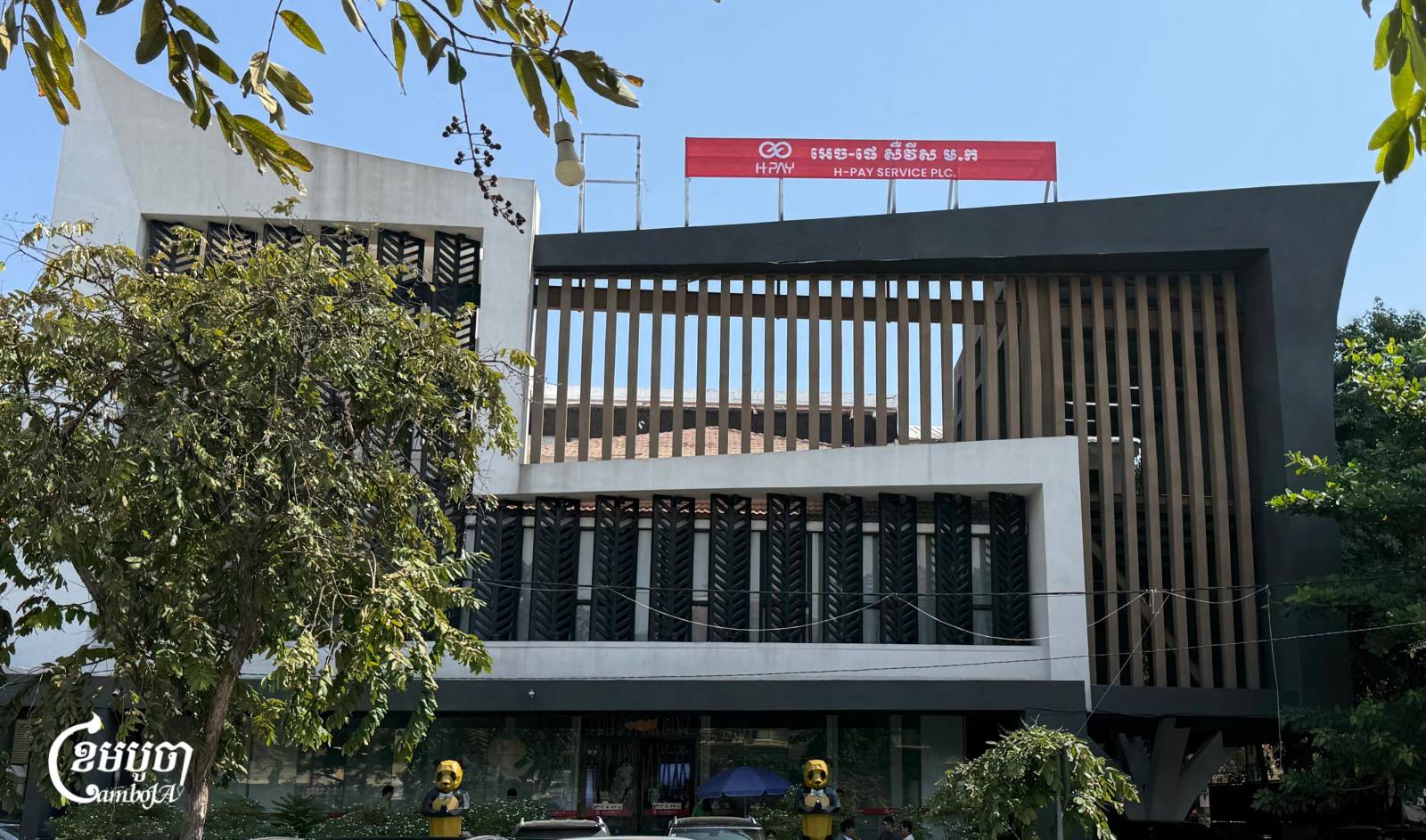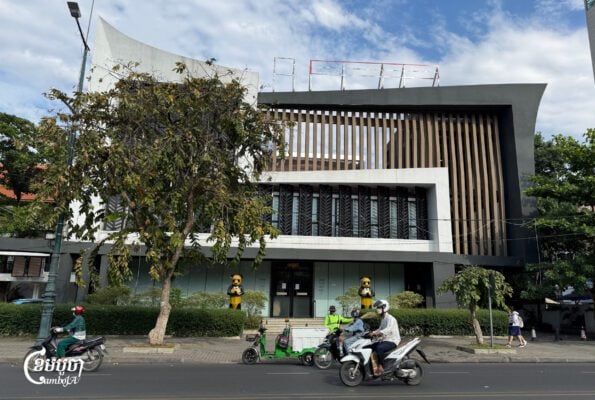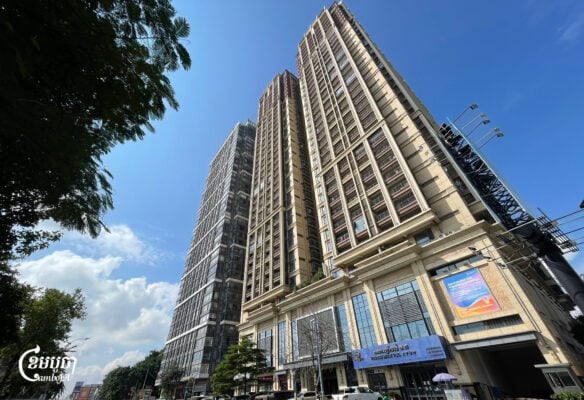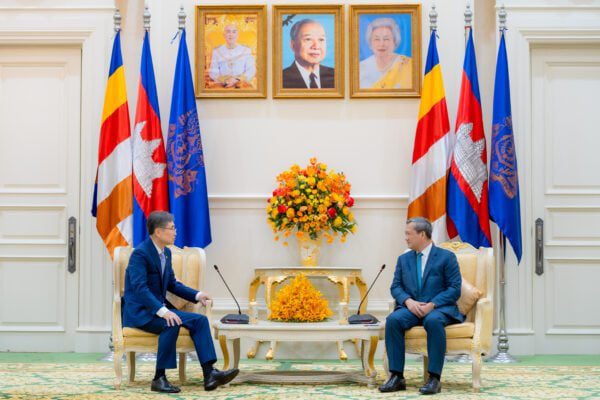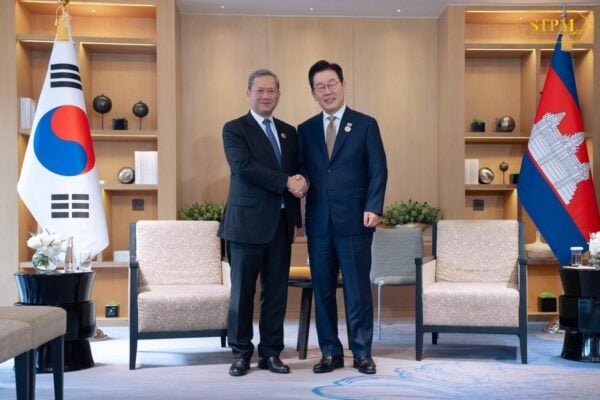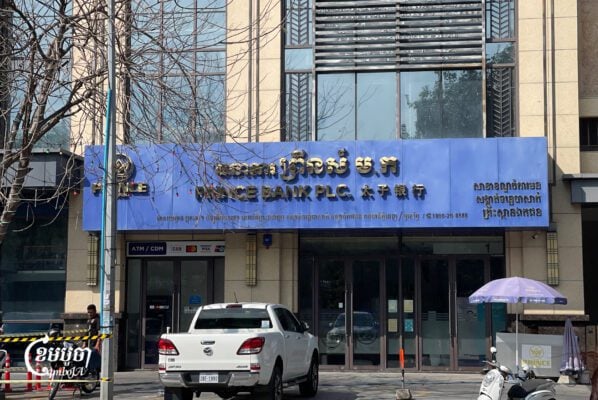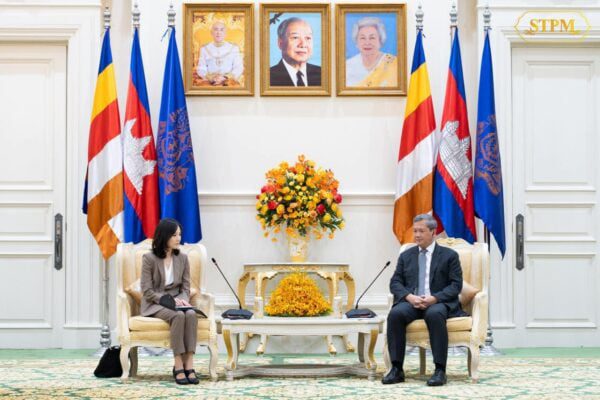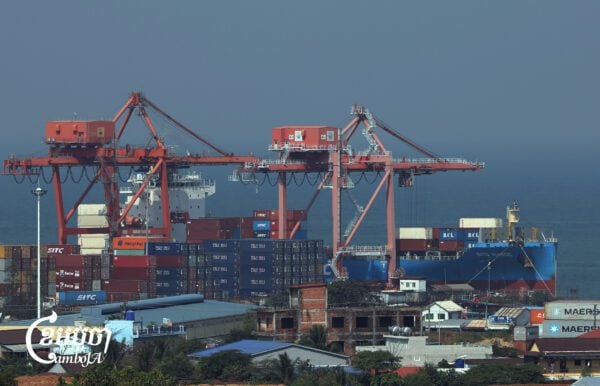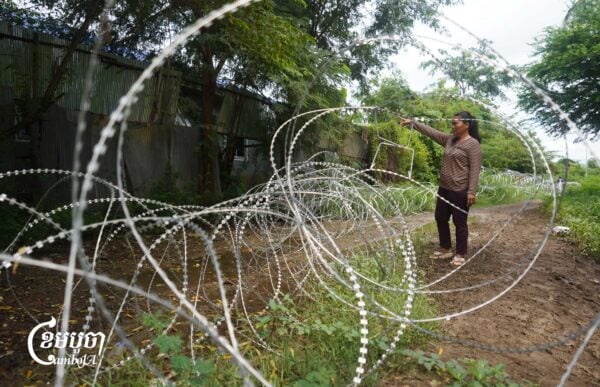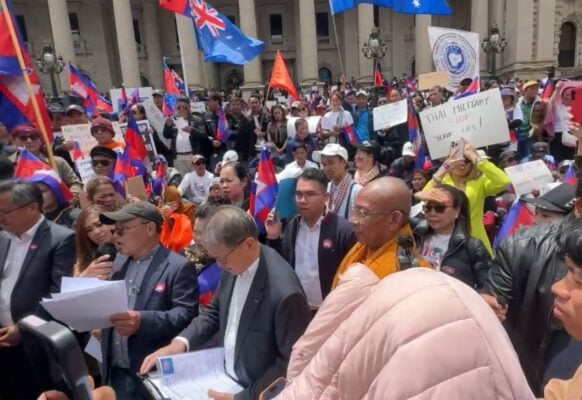Listen to the audio version of this article (generated by AI).
Digital payments platform Huione Pay’s headquarters and Phnom Penh branches have now rebranded as “H-Pay,” months after their signage was taken down following a U.S. blacklist alleging they laundered billions for crypto scams and North Korean hackers.
Huione Pay, the former online banking arm of Huione Group, was stripped of its banking license by the National Bank in March for “noncompliance of regulations,” shortly after Washington flagged it as a primary money-laundering concern. A crypto analytics firm that analysed Huione’s operations last year described it as the “largest ever online illicit marketplace.”
By October, Huione had been barred from the U.S. financial system, an announcement that came alongside sweeping sanctions that designated Cambodia’s Prince Group for alleged links to online scam and human-trafficking operations and seized billions of dollars in linked assets.
Despite its supposed liquidation and bare offices, a receptionist reached on Huione Pay’s listed phone number on Facebook said the firm is still operating as of Wednesday and told CamboJA News that account holders should download the H-Pay app to keep accessing its services.
Apparent clients were also seen entering and waiting in the lobby of the new H-Pay office in Phnom Penh’s Kakab commune, near the decommissioned airport, on Wednesday afternoon.
However, a review of the new firm’s and Huione’s corporate records shows a seeming overlap of senior leadership and directors, including with the politically connected Panda Bank. Hun To, a cousin of Prime Minister Hun Manet, was listed as a director of the bank till 2024.
H-Pay was incorporated in October 2024 according to Cambodia’s business registry. It lists three directors, Hung Kheang, Sim Sotheary and Rath Sovannarong, with Sovannarong serving as chairman of the board.
CamboJA News reached out to Kheang on a phone number listed on the ministry’s company database. He denied any role or knowledge of the H-Pay when contacted on Wednesday.
Reached again on Thursday, he confirmed his name but said he does not work for Panda Bank before hanging up. According to Panda Bank’s 2024 annual report, the bank lists a chief credit officer named Hung Kheang.
The phone number listed for Kheang on the business registry also links to a Telegram account displaying a Panda Bank logo next to his name. CamboJA News messaged the account seeking confirmation it belonged to Panda Bank’s chief credit officer, Hung Kheang. The message was read but not immediately answered.
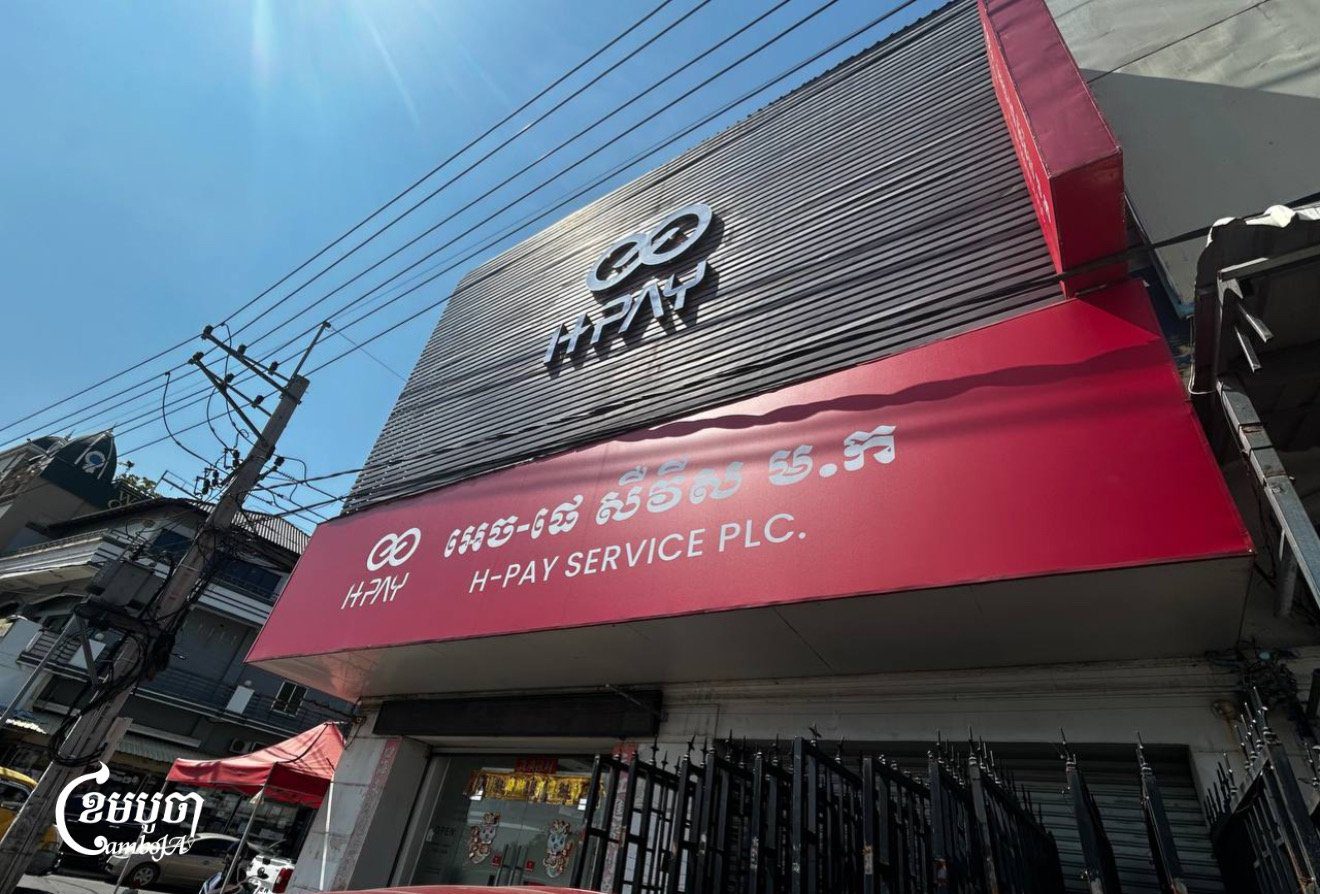
Sovannarong also denied holding the listed position on H-Pay’s board, and said he was unaware of any connection between Huione Pay and H-Pay. Sotheary denied involvement, saying, “I don’t know anything about that [H-Pay and Huione Pay],” before asking how the reporter obtained her number and hanging up after being told she was listed as a director of H-Pay.
Aside from Sotheary, who also runs a financial consulting company, CamboJA News found no other businesses linked to Kheang or Sovannarong in the Commerce Ministry records.
Additionally, H-Pay’s headquarters are located in the same building as a branch of Panda Bank, according to its website. Panda bear statues similar to those seen in Panda Bank’s branding remain at the entrance as of Wednesday, a holdover from when the location still carried a Huione Pay sign.
Despite the terse denials, links between Huione Group’s ownership and Panda Bank, officially known as Panda Commercial Bank Plc, have long been documented.
He Yanming, the listed owner of Huione Crypto, a Poland-listed entity the U.S. flagged as part of the conglomerate helping criminal syndicates move illegitimate funds before it announced its closure earlier this year, is registered as a director of Panda Bank, according to the Cambodian Commerce Ministry company database.
Hun To and Li Xiong, who have served as directors of at least four Huione businesses, were on Panda Bank’s board until resigning last October. Hun To has consistently denied that his businesses have any connections to online scams.
An August report by Bloomberg said Huione Pay continues to operate under H-Pay, citing two unnamed sources familiar with the entity’s operations.
Less than a week after the final U.S. sanctions on Prince Group and Huione Group and its reported associated firms, a Telegram channel catering to Chinese communities in Cambodia and known for posting updates on online scam networks noted that “Huione payment” had been upgraded to H-Pay. The post said its services, along with Prince Bank, “have fully resumed operations” and are reliable.
Cheong Kim Soon, the Malaysia- and Canada-educated CEO of Panda Bank, served as chief operating officer (COO) of Prince Bank in 2019, according to its annual report. He is not listed as Prince Bank’s COO in any reports after 2019.
Cheong is not named in U.S. sanctions reports on Prince Group and has not been accused of wrongdoing during his tenure at Prince Bank. He was at the bank when the U.S. alleges that Prince Group established “profitable cyberfraud operations across Southeast Asia, particularly in Cambodia.”
The National Bank did not immediately respond to requests to confirm whether Huione Pay is still allowed to deliver local financial services despite its license revocation and sanctioning, or whether those services have been transferred to H-Pay.
Panda Bank declined to comment on H-Pay when reached Wednesday, referring reporters to the company. When called again Thursday, a bank receptionist said a request for comment would be forwarded to CEO Cheong Kim Soon, and could not confirm whether the chief credit officer, Hung Kheang, has any connection to H-Pay. The receptionist added that H-Pay “is different from Panda Bank.’”


